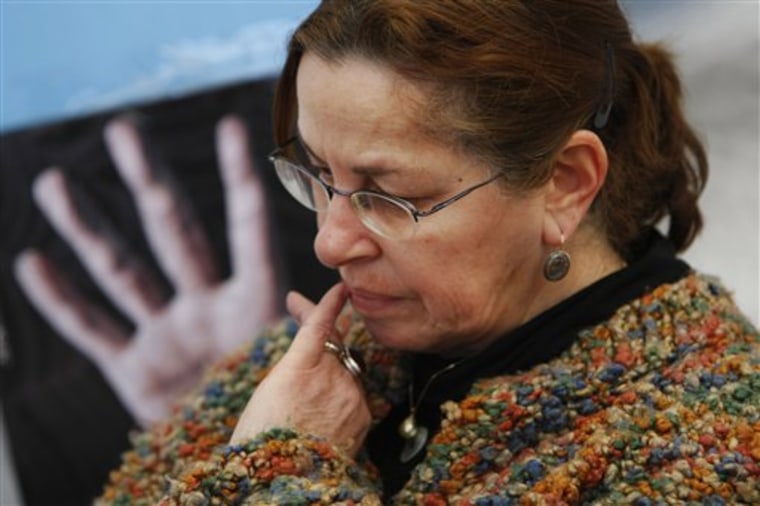A somber Israeli Prime Minister Ehud Olmert on Tuesday blamed Hamas for deadlocked talks that failed to win freedom for a soldier held nearly three years in Gaza, declaring that Israel would not free all the prisoners demanded by the Islamic militants in exchange.
In a statement broadcast live on Israeli TV and radio stations, Olmert said efforts would continue, but his tone indicated that there was no chance for a deal while he is premier. Benjamin Netanyahu is putting together Israel's next government, which is expected to be a hard-line team less sympathetic to Hamas demands.
The failure of the prisoner swap talks could set off a chain reaction of negative developments. Israeli officials repeated Tuesday that a blockade on Gaza will not be lifted until the soldier is returned home. That would seriously impede reconstruction after Israel's bruising January offensive in Gaza and it could hamper efforts to cement a truce between Israel and Hamas, leaving the danger of another sudden escalation.
The soldier, Sgt. Gilad Schalit, 22, was captured in a June 2006 cross-border raid by Hamas-linked militants who killed two other soldiers. His case has become an emotional touchstone for many Israelis.
"Israel presented generous far-reaching proposals to the other side that were supposed to bring about the release of Gilad," Olmert said. "These proposals were rejected. Others will not be handed over to the Hamas."
"There are red lines," he declared. "We will not cross them."
'No compromise' on demands
Hamas and Israel do not talk to each other directly — Hamas does not recognize the Jewish state and Israel considers Hamas a terror group — so the contacts were mediated by Egyptian officials.
After Olmert spoke, Hamas spokesman Fawzi Barhoum said Hamas had never changed its demands and was not concerned about the incoming Israeli government. "It is going to be no different, and no change and no compromise on our demands," he said.
Israel is holding an estimated 8,000 Palestinian prisoners, and Hamas wants some 1,200 freed, including 450 who masterminded or were otherwise involved in suicide bombings and other deadly assaults.
Israel balked at approving the entire list and wanted to deport some of the more notorious prisoners, fearing they would resume their militant activity if they returned home, Israeli officials said.
An Israeli official, speaking on condition of anonymity because of the sensitivity of the issue, said Israel agreed to free 320 of the 450 prisoners. He said a deal could still be struck if Hamas presented a new list of 450. That would be most unlikely after a year of contacts, with Hamas saying it would not compromise.
A message on a Hamas Web site Tuesday threatened abduction of more Israeli soldiers "to release our prisoners."
Next government
Before Olmert spoke, Israel released two lists, giving examples of prisoners it was willing to free and of prisoners it refused to let go.
Israel rejected a Hamas demand to free Abdallah Barghouti, 36, considered the Hamas master bombmaker. He was sentenced to 67 life terms for a string of attacks that killed 66 people and wounded more than 250, according to the government list.
His wife, Saeda Barghouti, 36, confirmed that he joined Hamas as a bombmaker in 2000. She said she has been allowed to visit him only twice since he was arrested in 2003.
Among the prisoners Israel was prepared to free, on condition that they be deported, was Walid Anjes, 28. He was convicted of delivering bombs to attackers who hit major targets, like the Hebrew University and a cafe across from the Jerusalem residence of the prime minister in 2002, killing dozens.
Israeli critics of such a deal have warned that hardcore militants could return to violence, as has happened in the past.
A disappointed Noam Schalit, father of the soldier, said after a briefing from Olmert, that he hoped the contacts would provide "a basis for the next government to continue the efforts."
Israel TV broadcast Olmert's statement on a split screen with Olmert on one side and the soldier's parents watching on the other from their protest tent outside Olmert's residence.
The soldier was captured shortly after Olmert took office. His government's failure to win his release tarnished his reign. Olmert was hoping for a successful prisoner exchange to improve his legacy.
He resigned in September under a cloud of corruption investigations.
